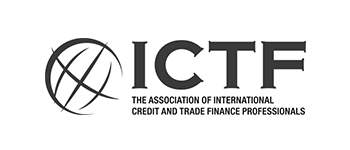A Reliable Solution for Securing Credit Transactions in Mexico.
We lower your risk of not getting paid when you extend credit to Mexican companies.
Protect your cash flow
and profitability
Expand into Mexico
confidently
Feel confident about
doing business in Mexico
Lending or selling on credit in Mexico shouldn’t be an insurmountable risk for your business.
Without good contracts or security agreements, you become at risk of not getting paid when you extend credit to companies in Mexico.
- Debtors can simply walk away without paying you
- You’ll waste time and resources trying to navigate the Mexican legal system
- Bad debt will be extremely hard to pursue, as no assets or resources will be available.
- You put your cash flow and profitability at risk
- Loss of opportunity – feeling unable to access the market in Mexico
- You will be competing with other creditors for your money.
Feel confident doing business in Mexico knowing that your credit transactions are secured, with the help of HMH Legal.
Secured Transactions
We know how important successful credit transactions in Mexico are to your cash flow and profitability.





"HMH Legal helped us secure our sales transactions in Mexico. Before working with them, I had some anxiety about doing business in Mexico, as I felt I didn’t fully understand the potential risks involved. They did a great job revamping our documentation, but what really impressed me was the time and effort they spent helping our local credit department “sell” these new documents internally to the sales team, many of whom were initially apprehensive the stricter docs might hinder sales. HMH allayed those fears, and now, knowing that we now have a strong set of documents for credit sales, it has taken away a lot of the concern about credit risk. We have confidence in granting or increasing credit knowing that we have the necessary tools to fully protect the company’s interests".

"I deal with a lot of people and vendors in Mexico, and they only see things their way. Instead, lawyers at HMH Legal put themselves in our shoes and in the shoes of our debtors and customers, adapting to the necessities of both parties, in the best way.”

"What surprise me the most was their quick response and that they are always willing to find a solution in order to mitigate risk, providing detailed explanation about a particular situation, solution, action plans, etc. They are very professional when asking for any legal advice."

Why HMH Legal for your
secured sales transactions in Mexico?
100% Focus
HMH Legal’s singular focus is assisting and protecting foreign companies with legal problems in Mexico.
Mexican Attorneys
We have a team of reliable and experienced lawyers to secure business transactions and protect your interests through the Mexican courts.
Experience
20+ years in business exclusively assisting creditors with cross-border transactions in Mexico, our area of expertise
Speak with one of our lawyers
HMH Legal’s “5-STEP” Secured Transactions Plan.
Here’s how we partner with you to support successful credit transactions in Mexico.
Assess
Assess situation with client, including project’s goal, non-performance risks, etc.
Review
Review jurisdiction, governing law, and dispute resolution opportunities.
Confirm
Confirm contractual regulation and parties’ obligations, remedies, and potential liabilities.
Incentives
Add incentives for potential debtors through key clauses.
Assist
Assist client in executing and implementing contracts properly, to guarantee performance.






FAQ
Secure Transactions in Mexico
In most common-law jurisdictions, “secured transactions” refers to the law that governs security interests in personal property (or movable assets) to guarantee payment or performance of an obligation. The security agreement modeled after Article 9 of the UCC (Uniform Commercial Code) in the USA, and under the PPSA (Personal Property Security Act) in Canada, is by far the main security device. In other jurisdictions (such as England and China), the main vehicles for creating security interests in personal property generally take the form of a pledge or a [fixed or floating] charge.
From a practical standpoint and in the context of the Mexican legal system (as well as other legal systems from countries in Latin America), a loan transaction or credit sale is secured and, thus, a secured transaction exists not only when creditors obtain a security interest in certain assets, but also when they put in place contracts that create strong obligations from the debtor or from third parties which can be effectively and efficiently enforced.
For instance, while the pagaré is not theoretically a security device (in the sense that it creates a security interest in certain assets), it does add some level of security to a lender that is looking to make a loan, as the pagaré will provide access to a privileged action where he will likely enforce the claim in a more effective and efficient way.
The goal of the creditor will always be to get paid. Should a debtor refuse payment or be unable to pay, the creditor must be able to seize the debtor’s assets and satisfy the payment from the proceeds of their sale. Moreover, the creditor must be in a position to effectively and timely enforce its claim, all the while defeating other challengers in the game, such as the bankruptcy trustee, tax claims, labor claims, other secured and unsecured creditors, and the debtor himself. Loan transactions that are properly secured will raise the probabilities of getting there, and getting there early, to get fully paid, as a security device based on a wise strategy will prevent many of the challenges of litigation that could obstruct or unreasonably delay enforcement.
Different factors dictate whether enforcement of a claim will be efficient and effective. Courts are one part of the equation. Courts that are inefficient, ineffective, or corrupt, will certainly change the odds. But even these challenges can be generally offset with the right strategy. Privileged actions or proceedings are a good start. Most legal systems in Latin America (including Mexico) provide for privileged actions and [summary] proceedings that give plaintiffs plenty of advantages during a case, including shorter timeframes and the ability to seize or repossess assets from the outset (analogous examples would be the action of replevin in the USA to repossess chattels, or the European order of payment procedure to collect debt, available in most European countries). Whether you enforce a claim in one year or in five, it makes all the difference. It may be that after finishing a case, the debtor is already bankrupt, or has fraudulently conveyed assets. Again, getting in early is what the game is all about. The challenge is accessing these privileged actions, which is only afforded to specific security devices that are recognized under Mexican law.
- Personal guarantee. A contract or a provision in a contract by which an individual or corporation promises to pay the creditor an obligation or debt of another. (The “Aval” is a personal guarantee that attaches to a pagaré.)
- Non-possessory pledge. A contract by which a creditor acquires a security interest in movable assets of the debtor (tangible or intangible) to guarantee payment of a debt, with the debtor keeping possession of the property.
- Pagaré. A document containing an unconditional promise to pay a stated sum to a specified person or the bearer at a specified date or on demand. It is a “promissory note” that is recognized under Mexican law.
- Classic pledge. A pledge that is limited to tangible movable assets, and where the debtor turns possession of the property to the creditor or to a third party who acts as a bailee. Loss of collateral may generate criminal liability against the debtor.
- Bond. A contract by which a guarantor agrees to pay the creditor if the debtor fails to pay or perform a contractual obligation. The guarantor is a financial entity authorized to act as a bonding company.
- Mortgage. A contract that creates a security interest over assets (usually real estate) of the debtor to guarantee payment of an obligation or debt, with the debtor keeping possession of the asset.
- Title retention clause. A clause that allows creditors to retain title to goods sold until they receive payment for them. It becomes effective against thirds parties upon its filing at the National Registry for Guarantees (RUG).
- Guaranty trust. A contract by which a debtor transfers title of certain assets (movable or real estate) to a trustee to secure payment of a debt in favor of the creditor. The guarantor has to be a Mexican bank or a financial entity authorized to act as a trustee in Mexico.
- Level of Security. A creditor should aim at a cost-effective security device that offers the most protection. A creditor will usually be better secured when there is strong collateral that does not depreciate. Real estate will usually be a better option than movable property. The creditor will also want security that will defeat other creditors or privileged claims. For instance, a mortgage is vulnerable to tax and labor claims, as opposed to a guaranty trust which defeats tax and labor claims.
- Implementation. Cost of putting the agreement in place (transactions costs) should be considered. A pagaré or a title retention clause are immediately implemented and inexpensive. While the guaranty trust is a strong option, it requires transfer of title, which adds challenges during the paperwork, as well as cost.
- Enforcement. The security device chosen should ideally allow an effective and efficient process for enforcement. Any of the security devices that offer a privileged action will always be a better option, as litigation will usually take less time and might even create incentives for a defendant to settle and pay early in the case.
It has been said that “good security” must possess the 4S structure: simple to take, simple to value, stable n value, and simple to realize. Here is an explanation of each:
- Simple to take. This ties into the implementation of documentation explained in factors to considered when choosing security. While transferring title to a trustee is strong security, getting the paperwork in place is not easy, nor inexpensive. A personal guarantee in contrast is quite easy to sign.
- Simple to value. Some assets (which will serve as collateral) are easy to value, while others are harder. For instance, real estate requires an “expert appraiser” to determine its current market value. The more specialized a property becomes, the more the creditor will have the need for a professional expert or specialist to determine current market value. Assets such as plant, machinery and inventory will usually require experts or special appraisers.
- Stable in value. The ideal situation for a creditor is to get a kind of security that will keep (or increase) its value throughout the life of the loan. Machinery and vehicles will usually depreciate fast, while real estate may hold its value or even increase it, although that is not always the case.
- Simple to realize. This ties into the enforcement factor explained above, when choosing security. To “realize” an asset simply means turning that asset into cash. How long does it take? What is required to do that? How much does it cost? Is it predictable or problematic? These are all questions that must be answered in assessing how efficient, effective and costly it is to realize an asset considered as security.
- Did the local attorney in Mexico review the security device?
- Are agreed remedies enforceable in a Mexican court?
- Does the security device afford a privileged action through the Mexican courts?
- Have creditor’s rights been further enhanced through special clauses, such as a privileged procedure?
- Is the venue selected the best forum for a creditor to bring an action against the debtor?
Although a written agreement is not necessary in Mexico for a commercial transaction or a related contract to be considered valid and enforceable in court, documentary evidence is going to help you bring a stronger case upon collection, and even relieve you from having to bring witnesses into the trial, which makes for a shorter case.
That is why you must support your sale of goods with a written contract, or at least try to sustain all details about your transaction with the use of key documents. Important details about the transaction include the following: 1) the debtor’s identity; 2) agreed terms of sale; and 3) performance of the parties’ obligations. Such conditions can be achieved by implementing and keeping the following documents:
- Credit application. This represents the most essential document to support your claim. It will be fundamental to include —among other things— terms of sale, considering CISG as well as Mexican law; debtor’s identity, including authorized personnel to make purchase orders; certification by signor about the accuracy of information provided; personal or corporate guarantees by shareholders or parent companies, etc. An original signed copy of such an application must be requested at some point during the initial stages of the transaction.
- Purchase orders (PO’s). Equally important is to have documents that prove that certain goods were requested (thoroughly specified), and that the buyer promised to pay on certain terms and to receive such goods on a specific location. Such PO’s are only to be considered if submitted and signed by appropriate personnel (as authorized in the credit application) and an original signed copy is received, or at least a digital copy by verified email.
- Receipt of goods sold. This requirement is met by requesting a proper bill of lading signed by the carrier who picks up the goods at your warehouse or facility. It is important to instruct the carrier to specify the date of delivery, and to obtain the full name of the person receiving the goods, besides his signature. If there is no carrier in the picture because the buyer is taking care of freight or transportation, a receipt for such goods must still be considered and obtained.
- Promissory notes. It is crucial to have debtors sign promissory notes for credit lines and for past due accounts. These are known in Mexico as “pagarés”. This helps by limiting defensive arguments and excuses a debtor may have in responding to a collection claim in court. This also enables a creditor to obtain an immediate writ of attachment upon filing his complaint. (Please contact us and request the free brochure “Pagarés: Rules You Need to Know Now for Valid Promissory Notes in Mexico.” It includes an example form).
The purpose of a retention of title clause [also known as a “title-retention” or “reservation” clause] is to secure the position of the seller where the delivery of goods has taken place without payment having been made. Essentially, it is a contractual stipulation whereby the seller defers the transfer of property in the goods to the fulfillment of the primary obligations under the contract most notably, payment of the price. As such, the passing of property in the goods is aspect of contract rather than conveyance or delivery. See Iwan Davies, Retention of Title Clauses in Sale of Goods Contracts in Europe, viii, Routledge, 2016.
If you are not including an arbitration clause in your contract, and you are also not intending to submit claims or controversies out of the commercial relationship to a foreign court (your country’s courts for example), you should consider including Mexican Law as governing law for your contract.
Because foreign law is not binding in Mexico and not recognized within its legal system, a plaintiff with a cause of action based on foreign law is going to have to prove to the Mexican court what does the particular and applicable foreign law provides regarding the controversy at hand. That requires to argue (in the plaintiff’s complaint) all the legal provisions pertinent to your case, and later prove them in court using expert witnesses or public reports from the foreign country officials (with the help of letters rogatory). Failure to meet these formalities will not only hurt you against a well-advised debtor, but also in an uncontested lawsuit.
Something to consider when choosing Mexican Law as governing law for your contract is the different situation that such regulation will create for buyer and seller with respect to their contractual and non-contractual liability, as well as the different legal remedies provided for under our legal system. For instance, punitive damages were not recognized under Mexican law until recently, which would render an award doubtful or unpredictable. With respect to torts law, most civil codes in Mexico provide a maximum amount cap an injured person can receive for actual damages sustained, generally far less than what they would be in the United States. (Although this principle was also changed with recent case law from the Supreme Court.)
Lastly, while Mexican courts will provide for a specific performance remedy under all situations in civil matters, it is doubtful whether such rule is to apply in commercial cases. This carries a threat to buyers in situations where the seller fails to deliver goods, since there will be much uncertainty as to the remedies available. As to the parties’ rights and obligations, the situation will likely remain the same since Mexico is part to the Vienna Convention on Contracts for the International Sale of Goods (CISG), making such international law binding under most conditions, unless specifically excluded.
The CISG is an international treaty which at least 94 countries have become parties to (just to mention a few: USA, Canada, Mexico, Australia, Argentina, most European countries except England, etc.), and contains international set of rules designed to provide clarity to international sales contracts by regulating them in almost every aspect, including: parties’ rights and obligations, parties’ liabilities, contract formation, remedies available against non-performance, etc.
The CISG will govern every sales contract in which a buyer and a seller are located in different countries which are signatories to the CISG, unless a specific provision in said contract excludes the application of the Convention. The CISG will not apply, however, in the following cases:
- international consumer sales (sales bought for personal, family or household use),
- specific kind of sales like auctions,
- sales regarding specific kind of goods like stocks, electricity, ships, hovercraft, and aircraft,
- generally, distribution agreements because they govern “future” sales of goods, and
- sale of goods where the buyer supplies a substantial part of materials needed for production.
There are important aspects of an international sales contract that are not regulated by the CISG, and one must rely on and/or consider domestic law. These include the following:
- CISG is not concerned with the VALIDITY of the contract, its provisions, or any usage. This means that in order to examine the capacity of the parties who entered into a contract, or to determine whether a party was induced into signing a contract by fraud, domestic law is going to be looked upon by a court, should a controversy arise.
- CISG excludes questions on the effect of PROPERTY or TITLE. As such, a third party who claims to have an interest in the goods that are sold, is going to have to rely in domestic law to find relief. Buyer is also going to have to look upon that area of domestic law which governs his situation regarding that third party who could claim a “better” right in the goods sold.
- The CISG does not apply to the LIABILITY of the seller for death or personal injury caused by the goods to any person. A serious question is indeed the case of torts law and liability. Like we said earlier, torts law in Mexico differs quite a lot from that of common law jurisdictions (such as Canada, the USA, England, etc.) and, therefore, should be considered.
First, consumer protection laws will apply and govern the sale of goods only when the buyer is recognized by the Consumer Protection Federal Law (CPFL) as a “Consumer”. For these purposes, a Consumer is either a company or individual who buys such goods for personal use, that is, as a final or “end-user” of said products. A buyer who is buying goods for any production or manufacturing process or for commercial purposes, is not a Consumer and, therefore, such sale is not going to be governed by consumer protection law in Mexico.
Second, because the CPFL’s main purpose is to defend consumers’ rights in Mexico, the CPFL will govern your sale of goods to a Mexican Consumer. Under such scenario, the CPFL provides regulation through articles 53 to 55 for sales made through television, telephone, mail service or any other means which do not allow for direct contact with the Consumer, and through article 76 bis, which specifically regulates sales made through internet.
There are several regulations that should be complied with to avoid problems during the import process, namely:
- NOMS. These are official technical standards issued by the Ministry of Economy describing specifications on products sold in Mexico.
- LABELS. All imported goods should include labels that allow identifying its general information as required by the Ministry of Economy.
- HEALTH. There are several health regulations that control and restrict the import of certain products for sanitary measures.
Besides these regulations, you should keep in mind that only those who have obtained an import permit from the Ministry of Economy are allowed to import products into Mexico. This means that to import any product you must establish legal presence in Mexico through a legal entity or corporation and obtain an import permit. (This would be possible through a distributor company.)
Generally, it is the buyer who takes care of the import process, either by himself or through a commercial house (commonly known as “comercializadora”). Under all circumstance, you must make sure that the legal commercial relationship is kept with the buyer and not with any third party.
Once this is settled, you will need an import declaration or shipper import (known as “pedimento”), completed by a Mexican customs broker or forwarding agent, along with the commercial invoice, packing list and bill of lading. If the goods are imported from a country that has a trade agreement with Mexico, you should also include the relevant certificate of origin.
